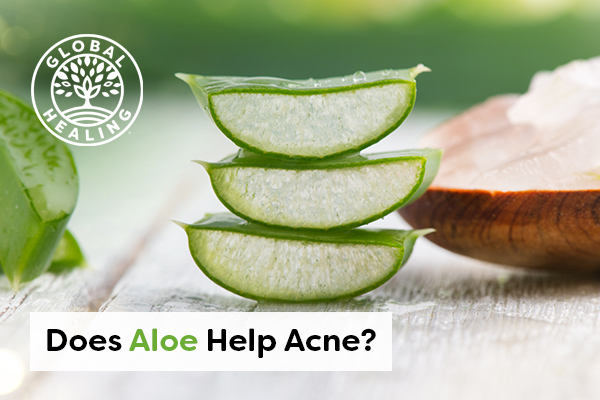
Many people are unaware of the versatility of aloe. The aloe vera plant contains over 200 vitamins, minerals, and nutrients. Talk about a superfood! It’s no wonder that aloe has such an important role in Ayurveda and Chinese medicine. In the west, aloe vera has built a strong reputation as a remedy for burns, acne, and more. However, aloe vera is only one of 400 different species of aloe and each has its own special properties and unique health benefits. Part of what makes aloe so popular is the ability of some species to fight acne. Let’s take a look at how adding aloe to your diet or using it on your skin can help protect against acne.
Choosing the Most Effective Aloe for Acne
The key to experiencing aloe's benefits on your skin boils down to how much of aloe’s acne-fighting polysaccharide, acemannan, is present. Studies show it encourages wound healing and promotes smooth skin. [1] It also helps to reduce the appearance of wrinkles, fine lines, and scarring. [2] The bottom line, when looking for an aloe product, look for one that's high in acemannan.
Which Aloe Product Is Best?
There are many creams, lotions, and gels that claim to use aloe. The reality of most products, however, is that aloe is only one of many ingredients and there’s not enough to make it useful. And, many of them use either outer leaf or whole leaf aloe, which dilutes the benefits because acemannan is only found in the inner leaf. Not to mention that many skin care products contain harsh chemicals that do more harm than good. Whether you’re using aloe or something else entirely, I recommend limiting your options to those with natural ingredients.
When it comes to skin care, aloe supplements tend to work as well or better than topical ointments. While you may not think that ingesting a capsule would be beneficial for your skin, it turns out that aloe supplements deliver key nutrients like acemannan that promote healing from the inside out. Aloe not only helps to clear up existing acne but reduces the chance of future blemishes. Again, for skin care, the key ingredient to seek out is acemannan.
Finding a product high in acemannan can be tricky and is the primary reason I created Global Healing's Aloe Vera. Global Healing's Aloe Vera is made with 100% organic inner leaf aloe vera powder and has the highest, most bioavailable level of acemannan on the market.
Can I Make My Own Aloe Treatment?
There are many people out there who grow aloe vera plants or other species of aloe at home. Although this allows for aloe on demand, it does take time and care. Additionally, it's hard to get an exact standardization in place. The mineral composition of each plant can vary, which makes it difficult to be entirely certain how much acemannan you're getting. [3] Aloe plants are also tough and have sharp spikes. That's probably a relatively low priority concern but if you have kids or pets, it might be something to think about.
When it comes to promoting good health, both inside and out, aloe is a great choice. There are many ways to use aloe, but if your goal is to use aloe for acne, look for a product high in acemannan.
References (3)
- Xing W1, Guo W1, Zou CH1, Fu TT1, Li XY1, Zhu M1, Qi JH1, Song J1, Dong CH1, Li Z1, Xiao Y1, Yuan PS1, Huang H2, Xu X3. Acemannan accelerates cell proliferation and skin wound healing through AKT/mTOR signaling pathway. J Dermatol Sci. 2015 Aug;79(2):101-9. doi: 10.1016/j.jdermsci.2015.03.016. Epub 2015 Apr 1.
- Cho S, Lee S, Lee M-J, et al. Dietary Aloe Vera Supplementation Improves Facial Wrinkles and Elasticity and It Increases the Type I Procollagen Gene Expression in Human Skin in vivo. Annals of Dermatology. 2009;21(1):6-11. doi:10.5021/ad.2009.21.1.6.
- Grace OM1, Dzajic A, Jäger AK, Nyberg NT, Önder A, Rønsted N. Monosaccharide analysis of succulent leaf tissue in Aloe. Phytochemistry. 2013 Sep;93:79-87. doi: 10.1016/j.phytochem.2013.03.015. Epub 2013 May 1.
†Results may vary. Information and statements made are for education purposes and are not intended to replace the advice of your doctor. If you have a severe medical condition or health concern, see your physician.







